وطنية – دان “لقاء الجمهورية” في بيان، “جريمة اغتيال المراسلة الإعلامية في قناة الجزيرة الشهيدة شيرين أبو عاقلة عن سابق تصور وتصميم أثناء قيامها بواجبها المهني وتغطيتها الاقتحام الاسرائيلي لمخيم جنين”. واعتبر ان “إسرائيل مسؤولة عن هذه الجريمة بما لا يقبل الجدل، وهذا اعتداء إسرائيلي على الجسم الاعلامي ككل، يجب ألّا يمر من دون تدخل […]
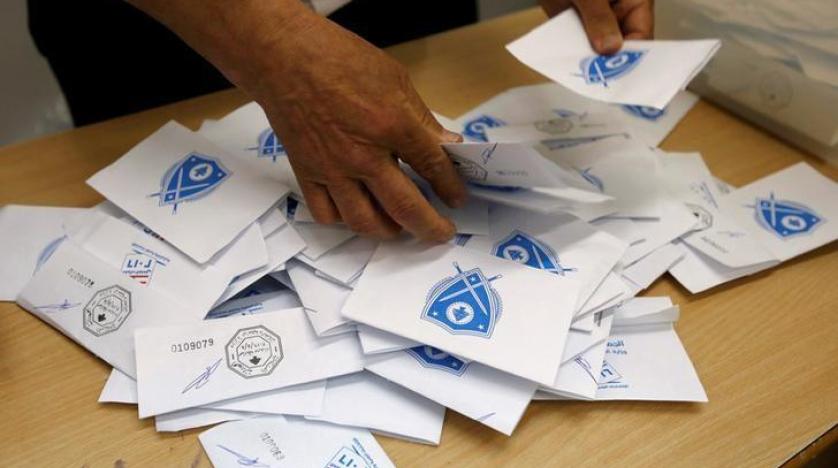
By Najia Houssari — arabnews.com — BEIRUT: With Lebanon’s crucial parliamentary elections on Sunday expected to go down to the wire, candidates and party supporters have been accused of trying to buy their way to victory by offering cash bribes to undecided voters. A Shiite voter in Beirut’s second constituency told Arab News that he had been offered $300 if he and his family agreed to vote for a particular businessman. The man, who asked to be identified only as Mohammed, said: “Supporters campaigning for their parties call me every day to ask who I will be voting for. I have no idea how they got my number. Some offer ration cards, others money, to either vote for them, or even boycott the elections or cast a blank ballot.” Mohammed, who has no links with the Amal Movement or Hezbollah, said he is unlikely to vote. “All the parties in power had the opportunity to fulfill their promises, but they have left their people mired in their misery. We will not re-elect them.”
Electoral bribery has long been a problem in Lebanon, despite laws banning the practice, but has become more widespread and visible with the collapse of the national currency and decline in living conditions. Now, if rumors from the money exchange black market are to be believed, the exchange rate will drop ahead of the elections as parties attempt to buy votes using US currency. One money changer, who declined to be named, told Arab News: “Electoral spending is expected to rise during the next few days as parties attempt to buy the largest number of votes, through direct bribes.” People in Beirut have reported that money changers have been stopping passers-by in the street to ask if they want to exchange their dollars.
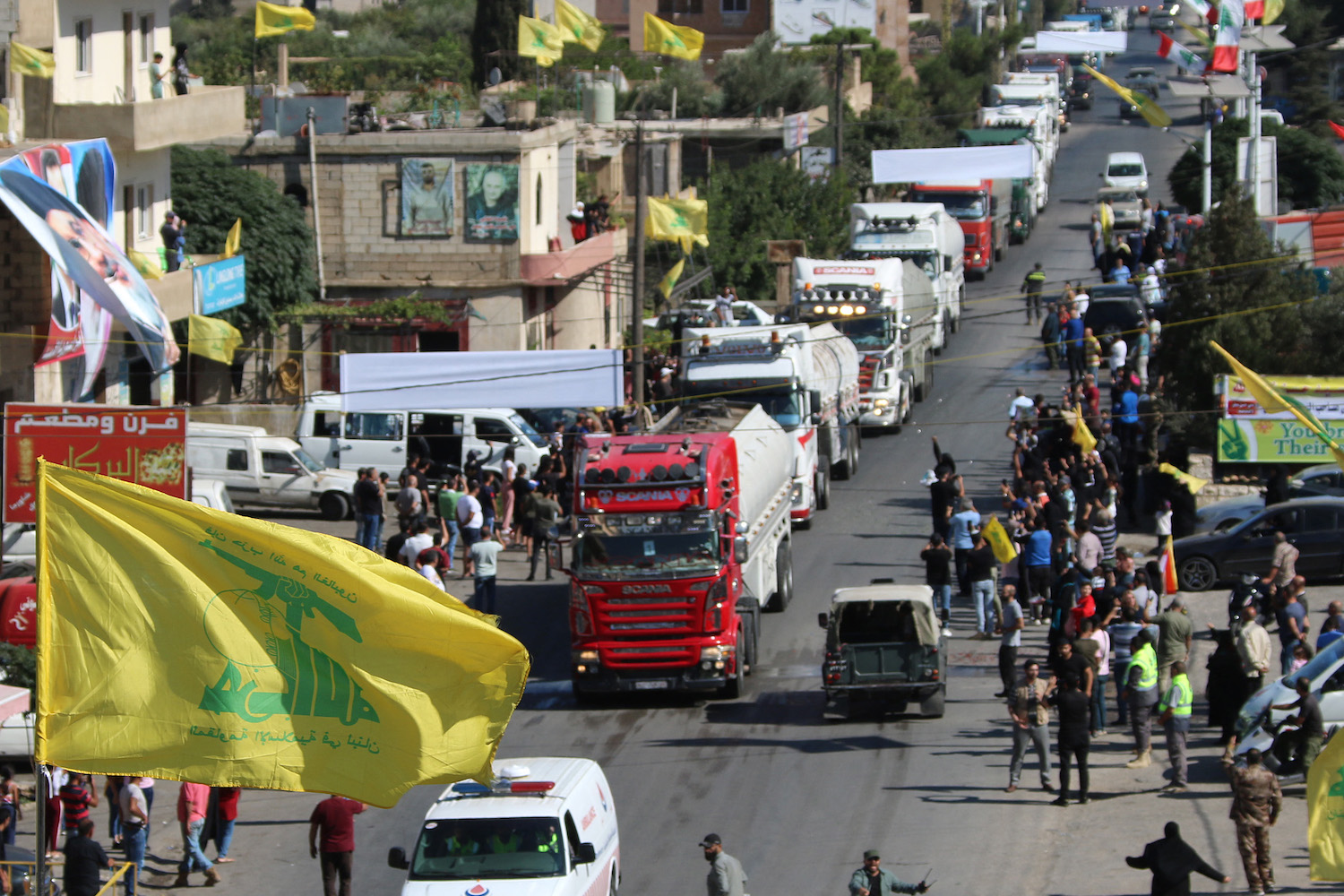
By Doreen AbiRaad — ncregister.com — BEIRUT — Amid the catastrophic socioeconomic collapse of their country, Lebanese are gearing up for legislative elections May 15. Lebanon has been going through an unprecedented economic crisis, labeled a “deliberate depression” by the World Bank and one of the worst in the history of the world since 1850. Parliamentary elections take place every four years in Lebanon for the 128-seat Legislature, which is equally divided between Christians and Muslims. Around 40% of Lebanon’s population is Christian. This year’s vote consists of a total of 103 electoral lists — divided among 15 districts — with 1,044 parliamentary candidates vying for the 128 seats, 20% more than in the last election in 2018. Of the 103 registered lists, around 30 are those of candidates resulting from a protest movement, a sign that such hopefuls have failed to form a united front.
Some of the participants of the protest movement begun in October 2019 decided to run for this year’s parliamentary elections, mostly as independents, opposing the political status quo. Observers told the Register this is a pivotal election for the future of the country — and its Christians. “A great deal is at stake for Lebanon’s Christians in these parliamentary elections — nothing less than the very existence of a free, open and prosperous Lebanon, harboring a secure and contented Christian community,” Habib Malik, retired associate professor of history at the Lebanese American University, said. Pointing to the “colossal historic catastrophe” the country is witnessing, Malik noted that “the gradual and systematic erosion of their finances, their jobs, their numbers, their livelihoods and their future prospects only begins to outline the contours of this unprecedented calamity for Lebanon’s Christians.” “Christians do need to go out on election day and cast their votes for any candidates opposed to the vampirical mafiocracy that defrauded the people and that continues to suck their blood,” Malik stressed.
Mismanagement and Corruption Blamed
by naharnet.com — Maronite Patriarch Beshara al-Rahi on Sunday lauded “the role of the government, the concerned ministers and the employees of embassies and diplomatic missions for the proper management” of expat parliamentary polls, which got underway in the morning in dozens of countries. “We have seen the Lebanese women and men heading to polling […]
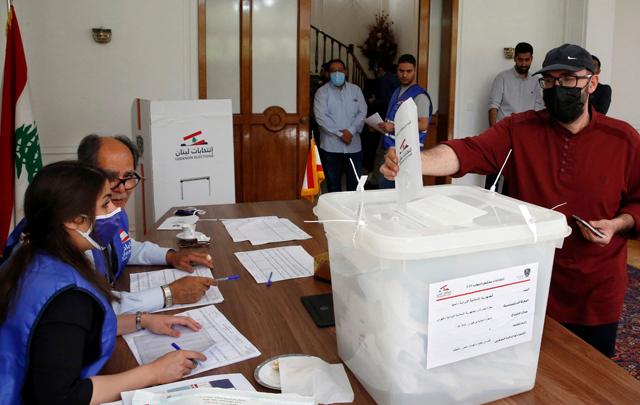
BEIRUT, (Reuters) – More than 100,000 Lebanese living abroad cast ballots for parliamentary electionson Friday and Sunday, many backing political newcomers after the worst crisis since Lebanon’s 1975-90 civil war led to widespread poverty and a wave of emigration. Some225,000 Lebanese living overseas were eligible to participate in the elections in more than 50 countries, the first since Lebanon’s 2019 financial collapse and the port blast that killed more than 215 people and destroyed large parts of Beirut in August, 2020. Overall turnout in overseas voting was around 60%, foreign ministry official Hadi Hachem told Reuters, or some 130,000 people. That is roughly three times as many as during the last polls, in 2018.
Observers expect large numbers of expatriates to vote for candidates from a coalition of activists and independents who gained prominence during 2019 protests against the sectarian political elites whose corruption and mismanagement is widely blamed for the country’s catastrophic collapse. “I want change,” said Samer Sobbi, a truck driver voting in Sydney on Sunday. “I don’t want the same people, the same people every four years, and if not the same people then their kids, if not their kids, their relatives. What about us?” Australia is among those countries with the highest number of Diaspora voters, alongside Canada, the United States, Germany, the United Arab Emirates. France has the most at around 28,000 eligible voters.
Turnout in Australia closed at 55%, while in the UAE more than 70% of eligible voters cast their ballots, one of the highest turnouts registered. The queue outside the Lebanese consulate in Dubai stretched for roughly a kilometre despite sweltering heat, and local police were seen fanning voters with pieces of cardboard. “I came today just to vote and don’t care how long we wait in the heat. We need change,” said first-time voter Christiane Daou, 37.

By AFP — Beirut — Lebanese expatriates on Friday voted in parliamentary polls, kickstarting a critical election that comes amid an unprecedented financial crisis that has spurred a mass population exodus. While opposition figures have pinned their hopes on the diaspora, experts said the elections were expected to uphold the status quo, despite years of economic meltdown. Expatriates in nine Arab countries and in Iran cast their votes on Friday, with Syria and Tehran seeing the highest turnout rates, according to Foreign Affairs Minister Abdallah Bou Habib.
Bou Habib said nearly 60 per cent of the 30,930 voters registered overseas had cast a ballot, a jump from 56 per cent in 2018. The foreign minister had expressed hope for 70 per cent participation earlier Friday but the final count announced after ballots closed was estimated at 18,225 votes. Expatriates in 48 other countries will vote on Sunday. On Saturday morning, two boxes carrying expat votes arrived at the Beirut airport from Tehran, escorted by Lebanon’s envoy to the Islamic Republic, the official National News Agency reported. All other ballots will be delivered to Lebanon by logistics giant DHL, with the exception of those from neighbouring Syria which will be handed over across the border, Bou Habib said.
‘Vote in large numbers’
It is the second time in Lebanon’s history that citizens residing abroad are able to vote for their 128 representatives, in elections set to be held at home on May 15. The vote is the first since mass protests erupted in late 2019 against the country’s entrenched ruling elite, widely blamed for the economic collapse. Bou Habib had said that Lebanese based abroad would be able to vote in more than 205 polling stations worldwide. The number of Lebanese who have registered to vote abroad has climbed from the roughly 92,000 in 2018 elections, though only 50,000 of them voted at the time. But voter registration, while on the rise, remains relatively low among the millions of Lebanese who live abroad, and their descendants.

سجعان قزي
@AzziSejean
هل يَنحصِرُ تأثيرُ الانتخاباتِ النيابيّةِ هذه المرّة على النظامِ اللبنانيِّ أم يَمتدُّ إلى الكيانِ اللبناني؟ في الدولِ الديمقراطيِّة المكتَمِلةِ التكوينِ الوطنيِّ يَقتصِرُ تأثيرُ الانتخاباتِ على تداولِ السلطةِ بين الأكثريّةِ والأقليّة، ولا يَطالُ النظامَ ولا الكيان. هكذا كانت الحالُ في لبنان حتى انتخاباتِ 1992 التي انعكسَت على النظامِ بوجْهَيه الدستوريِّ والميثاقيّ، وانتخاباتِ هذه السنةِ، 2022، التي ستَنعكِسُ حتمًا على النظامِ، وربما على الكِيان. فلا نَدَعِ الحملاتِ الانتخابيّةَ الفائضةَ والبرامجَ الشعبويّةَ المدَبْلَجةَ تَخدَعُنا وتُبعِدُنا عن جوهرِ الاستحقاقِ الانتخابيّ.
In a press conference from the Ministry of Foreign Affairs, Foreign Minister Abdullah Bouhabib announced that “the voter turnout in the first round of the expatriate elections amounted to about 59 percent.” Bouhabib revealed that “the largest percentage is in Syria, where it reached about 84%, then Tehran 74%, then Qatar 66%, followed by Kuwait […]
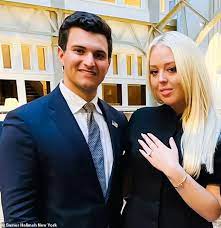
By foxnews.com — The wedding of the year is set to take place at the lavish Mar-a-lago estate in Palm Beach, Florida on Nov. 12. Tiffany Trump, the youngest daughter of former President Donald Trump, is reportedly set to tie the knot this fall with Lebanese businessman Michael Boulos, according to Page Six. More than 500 guests will attend the affair overseen by Trump and his ex-wife, Marla Maples, the outlet reported. Tiffany is the couple’s only child. The happy couple announced their engagement in January 2021, a day before Trump left the White House. Boulos proposed at the White House Rose Garden with a 13-carat emerald-cut diamond ring purchased in Dubai, which is believed to be worth $1.2 million.
Boulos’ father is business tycoon Massad Boulos, who runs Boulos Enterprises and SCOA Nigeria, a multi-billion-dollar conglomerate that trades in construction, equipment, retail and vehicles. His mother is the daughter of Lebanese businessman Zouhair Faddoul. Boulos grew up in Lagos, Nigeria, where he attended an elite international school, but later moved to London, England, to study management finance and risk at City, University of London. In the summer of 2018, Tiffany met Boulos in Mykonos, Greece, at a party hosted by Lindsay Lohan. The couple was first spotted together at the Taoray Wang runway show in September 2018 during New York Fashion Week. The couple initially set their sights on Greece to tie the knot. However, according to Page Six, the couple changed their minds and decided to hold the special event at Trump’s estate.
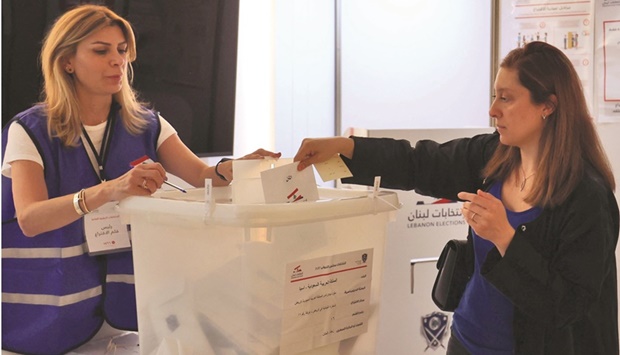
By AFP — Lebanese expatriates began casting their votes yesterday for parliamentary elections, more than two years into an unprecedented economic crisis has that spurred a mass exodus. While opposition figures have pinned their hopes on the diaspora, experts said the elections were expected to uphold the status quo, despite years of economic meltdown. Expatriates in nine Arab countries and in Iran were casting their ballots yesterday. Lebanon’s official National News Agency (NNA) said around 36% of registered overseas electors had voted by the afternoon, with some 11,000 ballots cast. Foreign Affairs Minister Abdallah Bou Habib expressed hope for 70% participation, noting that “voters in the Gulf usually rush to the ballot boxes in the evening.” The NNA said 65% of the 642 registered voters in Tehran had already cast their ballots. Lebanon’s ambassador to Tehran, Hassan Mohamed Abbas, welcomed the turnout. “Lebanese citizens living in Iran have shown lots of enthusiasm,” he said. In Saudi Arabia, around 30% of over 13,000 registered voters had voted by yesterday afternoon, according to the NNA.
Voting will take place in 48 other countries tomorrow. It is the second time in Lebanon’s history that citizens residing abroad are able to vote for their 128 representatives, in elections set to be held at home on May 15. The vote is the first since mass protests erupted in late 2019 against the country’s entrenched ruling elite, widely blamed for the economic collapse. Bou Habib had said that Lebanese based abroad would be able to vote in more than 205 polling stations worldwide. More than 225,000 people have registered to vote overseas, a jump from roughly 92,000 in 2018 elections — though only 50,000 of them voted at the time.
But voter registration, while on the rise, remains relatively low among the millions of Lebanese who live abroad, and their descendants. The economic crisis has pushed middle-class Lebanese, including families, fresh graduates, doctors and nurses to emigrate in search of a better future. While opposition groups hope the diaspora will vote for change, only 6% of overseas voters picked independents in 2018, according to a recent report by the Paris-based Arab Reform Initiative. Candidates from the traditional parties have sent messages to many expatriates in recent weeks to appeal for their vote.



